Hang Xiong
SEAGULL: No-reference Image Quality Assessment for Regions of Interest via Vision-Language Instruction Tuning
Nov 15, 2024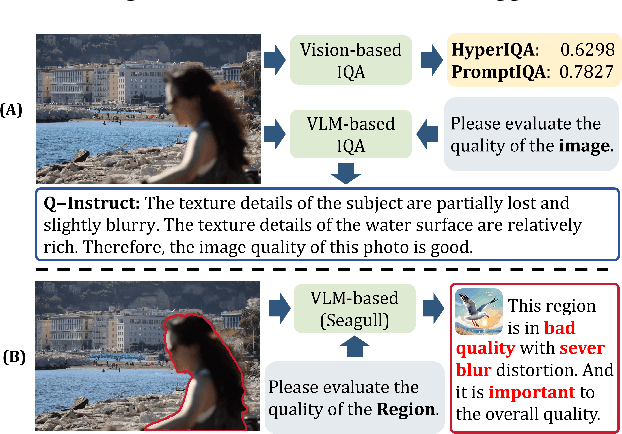



Abstract:Existing Image Quality Assessment (IQA) methods achieve remarkable success in analyzing quality for overall image, but few works explore quality analysis for Regions of Interest (ROIs). The quality analysis of ROIs can provide fine-grained guidance for image quality improvement and is crucial for scenarios focusing on region-level quality. This paper proposes a novel network, SEAGULL, which can SEe and Assess ROIs quality with GUidance from a Large vision-Language model. SEAGULL incorporates a vision-language model (VLM), masks generated by Segment Anything Model (SAM) to specify ROIs, and a meticulously designed Mask-based Feature Extractor (MFE) to extract global and local tokens for specified ROIs, enabling accurate fine-grained IQA for ROIs. Moreover, this paper constructs two ROI-based IQA datasets, SEAGULL-100w and SEAGULL-3k, for training and evaluating ROI-based IQA. SEAGULL-100w comprises about 100w synthetic distortion images with 33 million ROIs for pre-training to improve the model's ability of regional quality perception, and SEAGULL-3k contains about 3k authentic distortion ROIs to enhance the model's ability to perceive real world distortions. After pre-training on SEAGULL-100w and fine-tuning on SEAGULL-3k, SEAGULL shows remarkable performance on fine-grained ROI quality assessment. Code and datasets are publicly available at the https://github.com/chencn2020/Seagull.
Query-guided Prototype Evolution Network for Few-Shot Segmentation
Mar 11, 2024Abstract:Previous Few-Shot Segmentation (FSS) approaches exclusively utilize support features for prototype generation, neglecting the specific requirements of the query. To address this, we present the Query-guided Prototype Evolution Network (QPENet), a new method that integrates query features into the generation process of foreground and background prototypes, thereby yielding customized prototypes attuned to specific queries. The evolution of the foreground prototype is accomplished through a \textit{support-query-support} iterative process involving two new modules: Pseudo-prototype Generation (PPG) and Dual Prototype Evolution (DPE). The PPG module employs support features to create an initial prototype for the preliminary segmentation of the query image, resulting in a pseudo-prototype reflecting the unique needs of the current query. Subsequently, the DPE module performs reverse segmentation on support images using this pseudo-prototype, leading to the generation of evolved prototypes, which can be considered as custom solutions. As for the background prototype, the evolution begins with a global background prototype that represents the generalized features of all training images. We also design a Global Background Cleansing (GBC) module to eliminate potential adverse components mirroring the characteristics of the current foreground class. Experimental results on the PASCAL-$5^i$ and COCO-$20^i$ datasets attest to the substantial enhancements achieved by QPENet over prevailing state-of-the-art techniques, underscoring the validity of our ideas.
Bayesian Optimization using Pseudo-Points
Oct 12, 2019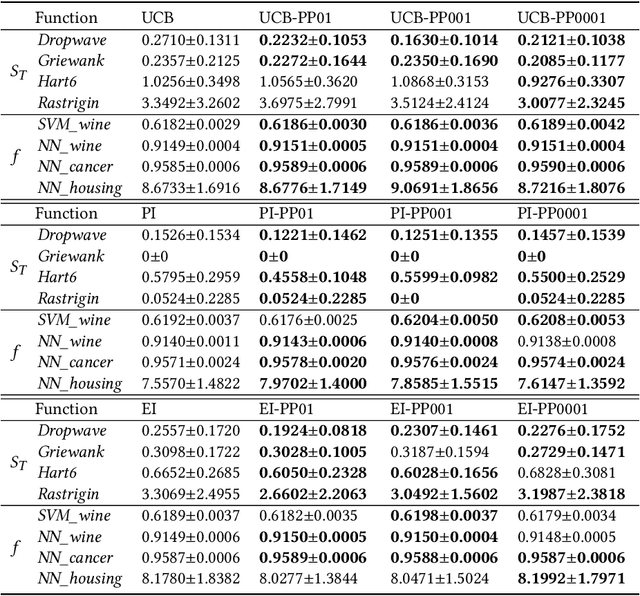
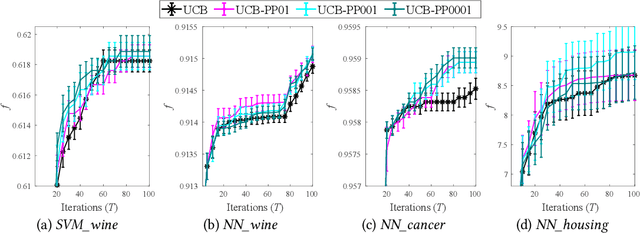
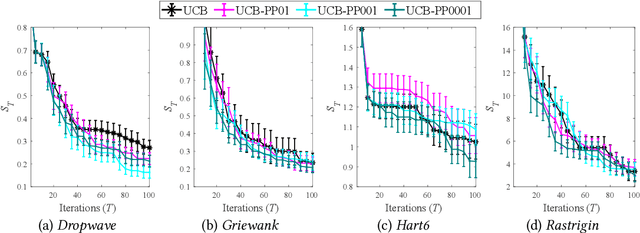
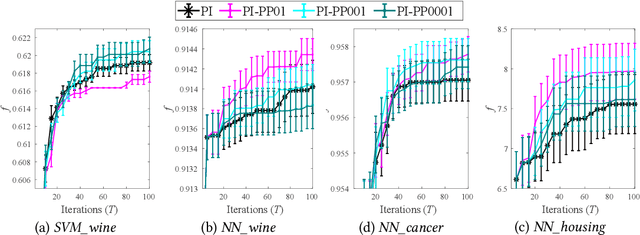
Abstract:Bayesian optimization (BO) is a popular approach for expensive black-box optimization, with applications in parameter tuning, experimental design, robotics, and so on. BO usually models the objective function by a Gaussian process (GP), and iteratively samples the next data point by maximizing some acquisition function. In this paper, we propose a new general framework for BO by generating pseudo-points (i.e., data points whose objective values are not evaluated) to improve the GP model. With the classic acquisition function, i.e., upper confidence bound (UCB), we prove a general bound on the cumulative regret, and show that the generation of pseudo-points can improve the instantaneous regret. Experiments using UCB and other acquisition functions, i.e., probability of improvement (PI) and expectation of improvement (EI), on synthetic as well as real-world problems clearly show the advantage of generating pseudo-points.
 Add to Chrome
Add to Chrome Add to Firefox
Add to Firefox Add to Edge
Add to Edge